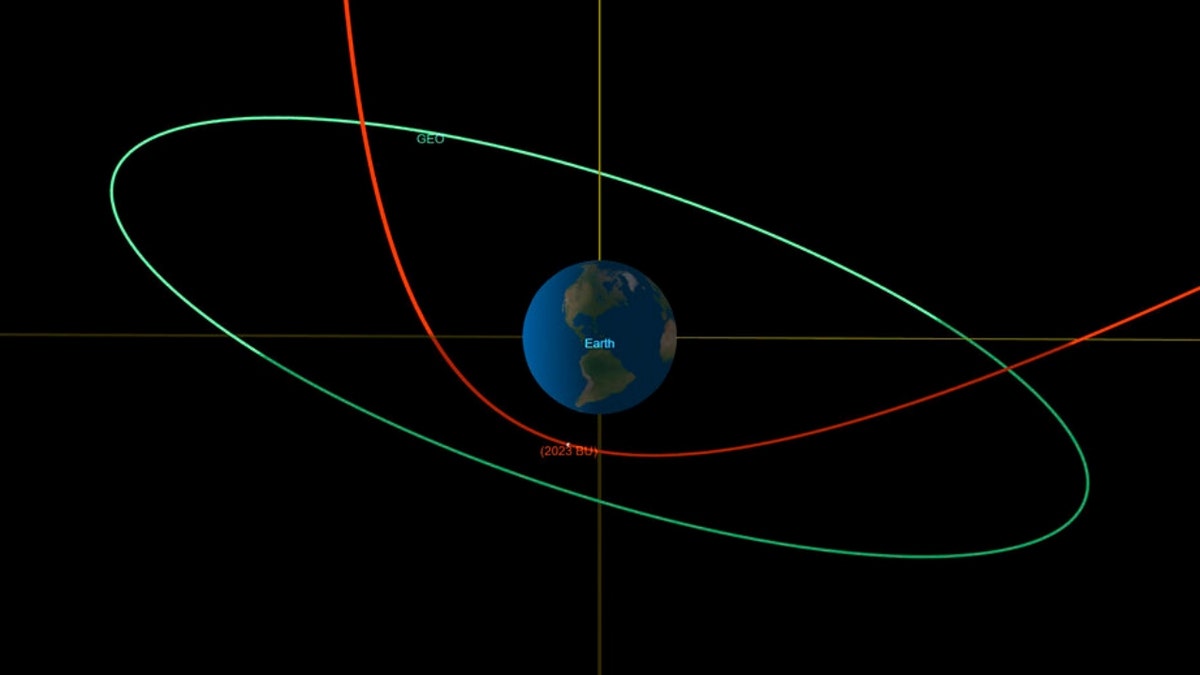Asteroid to rocket past Earth in one of closest encounters ever
NASA said that the asteroid, known as 2023 BU, will pass close to Earth on Thursday night. This will be a near miss, according to scientists at the agency.

An asteroid will fly past Earth on Thursday night in one of the closest such encounters ever recorded.
According to NASA's Jet Propulsion Laboratory, this will be a near miss with no chance of the asteroid – which is about the size of a delivery truck – hitting Earth.
The agency said that the asteroid, designated 2023 BU, will speed over the southern tip of South America on Thursday. The approach is expected to happen at 7:27 p.m. ET, just 2,200 miles above the Earth's surface and well within the orbit of geosynchronous satellites.
Even if the space rock came closer, scientists said it would turn into a fireball and largely disintegrate harmlessly in the atmosphere, with some bigger debris potentially falling as small meteorites.
The small asteroid, which is estimated at 11.5 to 28 feet across, was discovered by amateur astronomer Gennadiy Borisov on Jan. 21. Additional observations were reported to the Minor Planet Center and the data was posted to the Near-Earth Object Confirmation Page. Within three days, dozens of observations had assisted astronomers in refining the asteroid's orbit.
The NASA Scout impact hazard assessment system, which is maintained by the Center for Near Earth Object Studies at JPL, analyzed the data from the center and predicted the near miss.
"Scout quickly ruled out 2023 BU as an impactor, but despite the very few observations, it was nonetheless able to predict that the asteroid would make an extraordinarily close approach with Earth," Davide Farnocchia, a navigation engineer at JPL who developed Scout, said in a statement. "In fact, this is one of the closest approaches by a known near-Earth object ever recorded."
The asteroid's path will be altered by Earth's gravity once it passes by. Instead of circling the sun every 359 days, it will move into an oval orbit lasting 425 days.
The Associated Press contributed to this report.






















